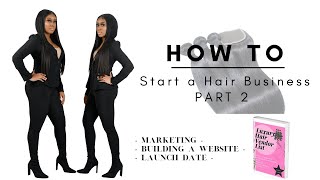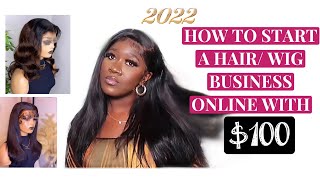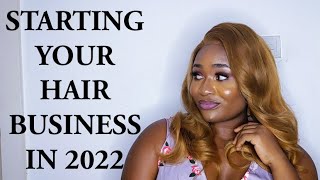The Business Of Black Women'S Hair
Full Episode: https://youtu.be/RQ7CRa3Is6A
In this clip Simone Mair one of the founders of the world famous ”CurlFest” talks about the billion dollar business of black women’s hair. #Businessofhair #curlfest
EYL Website: https://www.earnyourleisure.com/
Brand Resumes: https://brandresumes.com/eyl/
The hair care industry is huge. It'S a billion-dollar industry right, especially black woman's hair. I think saying I read somewhere that the hair care industry black women, make up 85 % of the dollars that are put into the hair care industry. It'S huge they're like billions of dollars right so for years. It'S it's been on the side of changing your hair like perms and relaxers, and things of that nature. But now it's been a shift in the culture in the world, really where now people are moving away from that and going more towards natural hair like what they have. As far as you know, whether it be dreadlocks whether the afro, whether it be just curly - and you know, that's one of the reasons why your festival was so successful - is because you know it's picked up momentum and it's in season right now. Hopefully, you know that lasts forever. Yes, but um. You know so. First, first and foremost we're gon na talk about the business of hair because some people men a lot of times and other cultures. They may not fully understand how much money was spent on here. The pressure of hair, the psychology of hair, it's very important thing right - here's extremely important, Troy doesn't have any hair yeah man, he has a beard was so what we're counting at now yeah for a while I was like. Can I attend the curl first? So here, psychology of here for even for us, we're black, but we don't we're not women, so as a young girl growing up like can you talk about the psychology of hair and how here really plays a major part in women's lives and self assumes well, yeah, Self-Esteem, 100 %. So the psychology of here that's a big one, so I'll give you a high level idea so for black women here is bigger than just hair right, it represents skewed perceptions of beauty that we have been fed. Since we were two years old it represents, you know everything that the society deems innately black or african as unkempt, not beautiful. All of these things from our dark skin to our kinky hair. I know it's our texture right here. All of these things have been. We have been taught that these things are not beautiful and - and you know you guys have seen studies with the doll projects back in this - think it's the 70s, where young, girls and boys that were four and three years old were given a white doll and a Black doll and every single time the black dog was deemed ugly or not pretty, and this is because it's a taut, it's been taught for generations from your grandparents, you know, combing your hair and pulling it and saying. You'Re here is tough and and it's a mess and using these these these words, like I'm, pretty and nappy and ugly. These things are taught until you know, and for generations, to your parents, to your own children to yourself, and it isn't until you actually come to the realization on your own. Do you realize that you kind of absorb these type of ideals - and you may not even know so for here for a black woman, especially it represents a lot of pain? Sometimes it represents beauty. What we consider beautiful, what men or the society or the media, considers beautiful with us, so it's yeah it's more than just here, and I say that all the time that curly our collective, even though it says curly or the or crow fest, is presumably about hair. It'S much larger conversation. Crow Fez, ironically, is not about hair curly girl collective is not about here. It'S about a bigger conversation about changing the ideals and societies. You know Western ideals of beauty yeah because I mean systemically for four years and we're eighties babies, and we said this kind of off-camera, but the image of beauty has always been a European ideal. All right. It was straight here. It was very slim so like when you were growing up, it was Barbie dolls, it was Sports, Illustrated magazines and, and none of the women looked like you and over the past I'd say ten years, we've kind of seen that shift, and I think that you, the Your crew, your collective, is doing an amazing job of doing that or change the narrative where it's like. Now we see real-life actors and actresses and cartoon figures that represent us, and it's changing right so, like my daughter now grows up in a world where that black doll is now beautiful because it looks like her yeah, whereas you know for girls, your age and girls, Who grew up in that era? They didn't exist exactly you know so systemically it was put in a certain way but you're changing it, and I think that's amazing. Thank you. Yes, slowly changing the the conversation and we still have some ways to go sure. So, let's go to some numbers, as I said, baby for african-american or black women represent 85 % of the beauty industry, even though we're 14 % of the total population of the United States right so and then also, they estimate the black hair industry at 2.5 billion Dollars, industry and that's not even including wigs yeah, so it's kind of undervalued because it doesn't include wigs and weaves and you know we live. We have mothers and we have sisters. So we know that that's a huge part of the industry, it's expensive extensions! Braids! All these things, the the amount that it cost to put these things in your hair, like so for a beautician standpoint and the amount of money that is sold in those salons. I it's at a 2.5 billion, if you add those things up, we're talking like maybe 10 to 15 billion, so it's a little undervalued and us absolutely. We have a huge power in in in what we spend in the beauty market yeah, and it isn't until now that we're actually using the power that changed the conversation of what we want to see on the aisles represented in the media and changing the definition of What is considered beautiful is not until now we're seeing that we use our own power to make that shift. Yeah cuz, even I was surprised by some of the numbers, so they said that relaxes are down 26 %, so people are moving away from that right. But still so india imports six million pounds of hair to America. China imports 1.5 million pounds of here's a lot to American. It'S a lot here. So that's a lot of hair right. So it's it's really interesting because, like I said a lot of times, other coaches, they don't fully understand because it is different like they did here. Upkeep is is different great, so like what do you think the average like cost of maintaining here, because it's expensive either way? Even if you go natural, you still got to maintain naturally right and then, if you, if you're, not natural, then you obviously have to maintain that as well. So I've seen I've heard women say five hundred dollars a month, six hundred ollars among seven hundred dollars a month later. What would you from your friends your personal experience? What have you seen as far as like average I'm just buying natural hair products alone or hair products alone? You could spend several hundred dollars a month. I think that's easy. It'S. The average product is maybe between ten and twenty five dollars. So what price are we talking about like? What are we buying is like shampoos or conditioners like what we do, shampoos conditioners made specifically for your hair type, curling, creams, twist-out creams. I can list what we call that we call it product junkies in the natural hair world that I could have a full closet, full of natural hair products, and I'm I get access to a lot of them and I'm still in the beauty, supply store, buying products. Trying to find new things that work with my our hair and part of that is because, especially for natural hair women, we're relearning how to work, without here, after years of not being able to to to use it or understand what made how to make our hair. Look beautiful when you walk out the door or style it. We have to change and relearn these things so anytime, a new product comes out and shows you, your hair, looking a different way. Everybody'S great runs to go, get it and it's part of that relearning process. As well, which which leads to us, you said something very important. You said that you know we're the biggest consumers of here right, the United States and black culture for sure we don't have any. We don't supply it, though, which is kind of weird right like you would think that, because we use it so much that we would actually have independent agencies and companies coming out with products to supply. Why do you think that's not happening in our community to supply hair or the hair products? Both we do have some black owned hair products and we try to promote them as much as we can. We don't have as many in the mainstream as we would like because of a number of reasons: access to capital. You know to be able to produce products at the level and at the the scale that you would need to get it into the big stores. However, a target and big brands are seeing the need for that, and you see the change you see right at the end. Cap you'll see hair products made by one person. A black woman like let's say Eden Body Works, for instance, made by a young black woman when she was 16 years old in target or all sorts of other things. There'S a Shea moistures of the world also made by black men. Richelieu Dennis he's huge, but it started in a very humble place right independently and you do see these things changing and a lot more brands in the big stores, the big box stores now than you did even five years ago, yeah I mean yeah. We actually researched that as well, and one of the things is that yet, like you said, Target Walmart, they're, all starting to incorporate natural hair products and even other companies like L'Oreal and Revell, but like L'Oreal, they own dark and lovely own Carol's Daughter. They pour Carol's Daughter and raviolo. I think I'm cream of nature they own, so that's a little discouraging on a certain level right, because it's like the kind of questions they take their catering towards black woman's hair from black companies, but they don't they own those companies. So they still aren't control of the marketplace, even though I mean it's good that they're starting to cater towards that, they offer products right, but they're still in control of the money which is yeah and that's when it all comes down to





Comments
Ife Ife: This is a necessary topic- to open the eyes of our sisters!!! Thanks for doing this show!!!
Geo Cyo: I have always loved and embraced the word 'nappy'. I was actually saddened to find out in my adult life that this word is more often than not taken as a pejorative term. I just look at it as a harmless synonym to kinky.
Courtney Bush: I thank my parents for teaching me from a young age that my black is beautiful. I was born in the 70's but grew up in the 80's and all my parents bought were black dolls and in coloring books, I colored all of the characters black. My father was a huge part of it by making me read books by black authors telling the black experience. While I admit I had a perm for a little while LOL, when I went back natural over 10 years ago, it was like cutting off a chain ... it was freedom.
Chula B: Thank you guys for bringing madam to the table to discuss this issue. Sparked my mindset. Thank you
Solo: This is needed info for both sexes , I know as a black male trying to create my healthcare line specially hair care how important it is to cancel out the “middle man”. For hair more so than haircare we have to find away to be suppliers abroad and in the states if possible.Also we have to maintain integrity and not sell companies when it’s worth gets high.i love my people and my woman and I feel nobody should be the benefactors like us especially since we’ve been fucked over so much ✊✊✊
MikkisoXTRA: It all comes down to who controls the money.
john: I do not see more of our women with natural hair; in fact, I see more with synthetic hair...and do not look good/comfortable with it. We should not financially support what we claim "oppresses" us, neither should we be begging to be included in their standard of beauty.
Kohrey:
Frank Mathews: Let’s get to the #’s. #shad
Frank Mathews: Big like